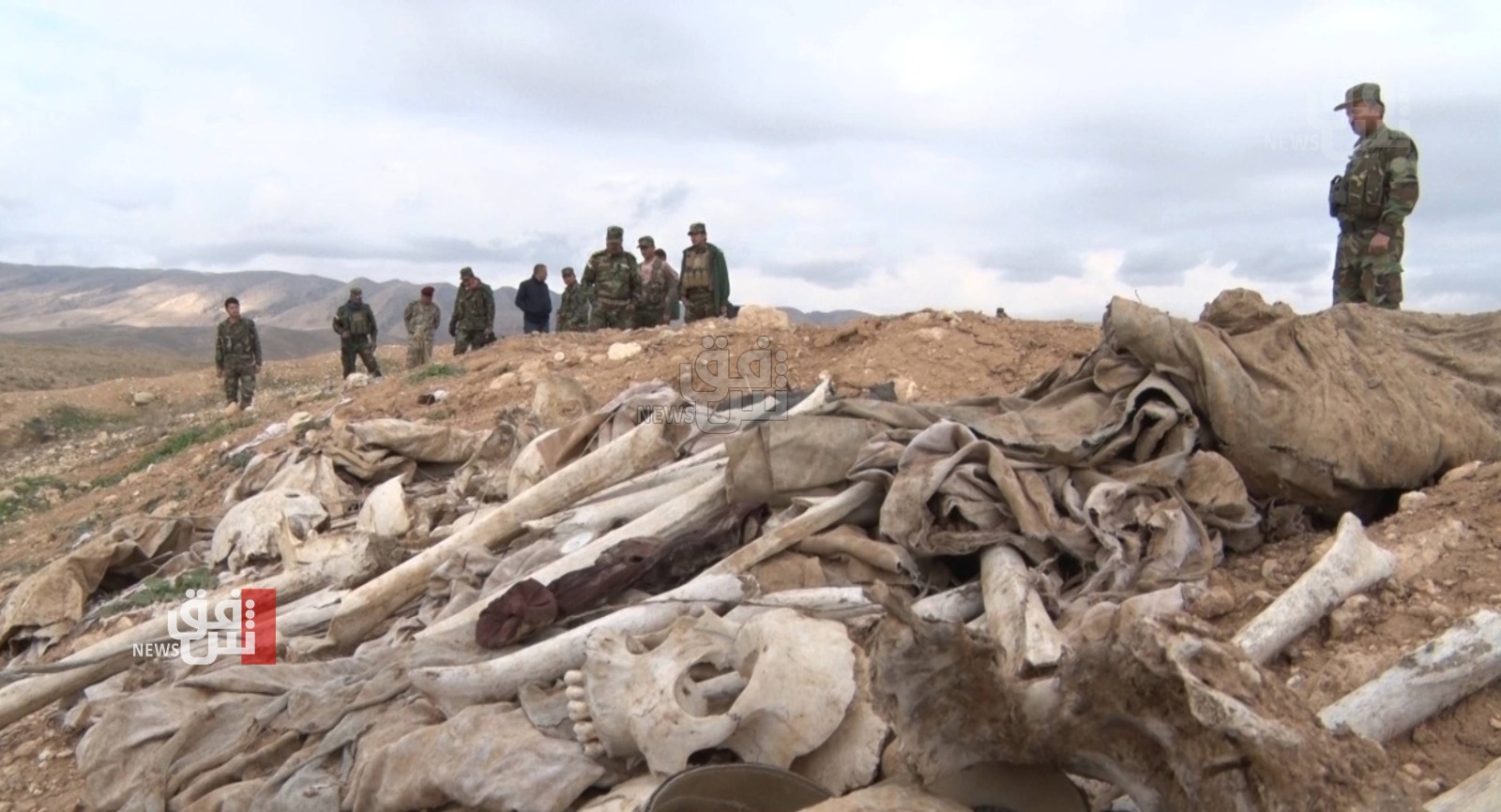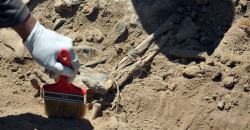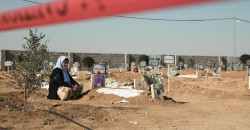HRW urges Iraq to intensify mass grave exhumations

Shafaq News/ Human Rights Watch (HRW) has called on the Iraqi government to accelerate efforts to exhume mass graves, stressing that thousands of victims of unlawful killings remain buried across the country. The organization highlighted the need for justice and closure for families still searching for their loved ones.
Human Rights Watch said that Iraq is home to some of the world's largest mass graves, with an estimated 400,000 bodies buried. These graves hold the remains of victims from various conflicts, including Saddam Hussein's genocide against the Kurds in 1988 and the mass killings by ISIS between 2014 and 2017.
"Mass graves are painful reminders of the most violent chapters of Iraqi history, and exhuming them is crucial for allowing families of victims—and the nation—to get any hope of justice and heal from these wounds," said Sarah Sanbar, Iraq researcher at Human Rights Watch.
The United Nations Investigative Team to Promote Accountability for Crimes Committed by Da'esh/ISIL (UNITAD) has supported Iraq's Mass Graves Directorate in excavating 67 mass graves since its creation in 2017. However, the organization's mandate is set to expire in September 2024, after a one-year extension requested by the Iraqi government.
Human Rights Watch expressed concern over the impending end of UNITAD's mandate, warning that Iraqi authorities might not have the capacity to continue the work. "Our one hope as victims and survivors was UNITAD," a man whose family members were found in a mass grave south of Sinjar told Human Rights Watch. "Many things are going to get worse when they leave."
Dhiaa Kareem Taama, director general of Iraq's Department of Mass Graves Affairs and Protection, confirmed that 288 mass graves have been opened since 2003. But he emphasized that the lack of a unified national registry makes it difficult to determine how many people remain buried.
The organization also highlighted the bureaucratic challenges families face in identifying remains and obtaining death certificates, which are necessary for compensation under Iraqi law. One man, whose relatives were found in a mass grave, said, "It has been five years, and until now we haven't had any news from the Medico-Legal Directorate."
Human Rights Watch urged the Iraqi government to increase funding for exhumation efforts and improve the capacity of the Mass Graves Directorate and Medico-Legal Directorate. The organization emphasized the importance of ensuring justice and accountability through thorough investigations and evidence collection.
"Exhuming all of Iraq's mass graves will require a serious and sustained commitment from Iraqi authorities, and it's one that must absolutely be be made," Sanbar said. "Healing the wounds of the past won't be possible without it."





